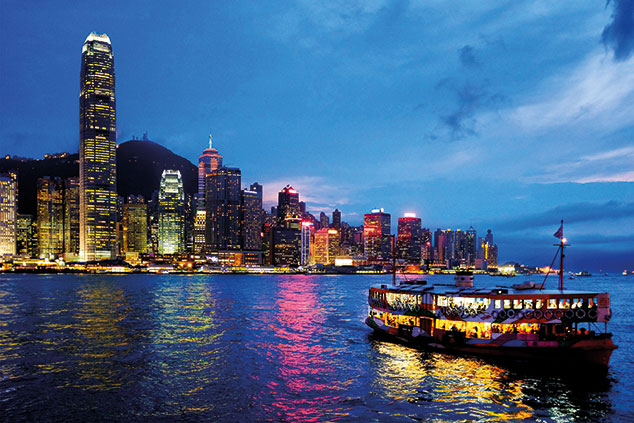
China’s leaders do not want to kill the goose that lays the golden egg, says Sweeney. Hong Kong accounted for about 12% of the mainland’s exports last year and is the single largest source of “realised foreign direct investment” to China. Its stock exchange gives mainland firms “an independent channel to international capital outside… New York or London”.
East meets West
“Asia’s World City” has long been an attractive destination for international investors wanting to buy “red chips”: mainland firms listed on the Hong Kong exchange, such as tech giant Tencent. Red chips offer exposure to the world’s second-biggest economy, but with a predictable legal system and an expectation of corporate transparency.
Under the “one country, two systems” framework instituted after its return to China in 1997, Hong Kong has retained significant autonomy over its own affairs. Yet recent years have brought a creeping “China-isation”, says William Pesek in the Nikkei Asian Review. The latest drama comes against a “fragile economic backdrop”. Growth in the first quarter was the slowest in a decade and rocketing property prices have stoked discontent. But previous bets against the city have proved wrongheaded. Those who sold Hong Kong property before the 1997 handover “are seriously out of pocket”.
Washington’s decisions could prove just as important as Beijing’s, says Ambrose Evans-Pritchard in The Daily Telegraph. The US recognises Hong Kong as having a “special status”, which exempts it from Trump’s tariffs. The Hong Kong dollar is pegged to the greenback. Yet with a trade war raging, moves are afoot in the US Congress to bring those cosy arrangements to an end. The Fragrant Harbour’s role as the world’s third-biggest financial hub “can no longer be taken for granted”.
Shanghai calling
British investors now have another way to bypass Hong Kong’s financial markets. A link between London and Shanghai went live this week. Shanghai-listed firms will now be eligible to take a second listing in London. UK companies can also sell shares in China, although red tape means that the system remains limited for the time being.
The latest development underlines the threat to Hong Kong’s financial status from the likes of Shanghai and Singapore, says Bloomberg Businessweek. With mounting “instability and fear” in Hong Kong and regional competitors upping their game, the city faces “a perfect storm”.